In a granite-grey Aberdeen home, not far from Aberdeen Royal Infirmary, a group of women are trying to change the world – one baby at a time.
“We’re building an army,” laughs Nicola Goodall, 53, as she leans against a counter in the kitchen.
She is what is known in birthing circles as a ‘doula’ – someone who provides practical and emotional support to women throughout pregnancy and birth.
With over 20 years of experience, Nicola is a respected figure in the doula community.
Today, she is training volunteers who want to become birth support workers themselves.
In the living room next door, they chat over coffee and biscuits, eager to absorb her knowledge.
It is something Nicola has done many times before, but today there is a difference. Over the past few years, birth support has become something of a middle class privilege, available only to those who can afford it.
The prospective doulas in this house, however – the ‘army’ Nicola refers to – will be the first in a new batch to work specifically with people who can’t afford the sometimes-prohibitive fees associated with birthing support, beyond what is delivered by the NHS.
These volunteers will work with people in need: victims of domestic abuse, individuals from low-income backgrounds, and other vulnerable groups who may have no one else to advocate for them at one of the most critical moments in their lives.
“It’s essential work that will save lives,” says Nicola, who has supported countless vulnerable mothers, including gang members in London. “And not just save lives, but help people get on a better path.”
‘The north-east is huge and some areas are really isolated’
Next door, Cassie Lawrence, 38, co-founder of Grampian and Tayside Birth Partners, which runs the new doula programme, has been working towards this moment for some time.
A mother of two and an experienced doula herself, Cassie has long felt a sense of unease that, in her words, “you’re helping people who can afford it, while those who need it most often can’t”.
“The north-east is huge, and some areas are really isolated,” she explains, adding that the oil and gas industry attracts incomers who lack a local support network.
“If you have connections, if you have people who can be a touchstone for new parents, even in the most rural parts, that’s really important.”
For Cassie, the project is about restoring community care for mothers, something she and others feel has been lost. She is aware that doulas are sometimes seen as a ‘new-age’ concept, but she prefers to frame the practice in traditional terms: a return to what once happened naturally in local communities.
“We called them ‘howdies’ in Scotland,” she says. Community “birth companions” that would have been a feature of any town or village 50 or 100 years ago, ready to help anyone go through pregnancy and birth.
And not just the mothers.
“The actual birth partner has never really seen anything like that before as well,” Cassie says. “So you tend to be there to support both of these people. It’s a really big deal.”
Fanning out from Aberdeen to give birth support to all
Cassie says the doula support will start when the first batch of trainees complete their training. They will fan out across Grampian, while in Tayside another group is due to receive training in May.
Cassie is also waiting for the group’s charity status to come through, which will allow it to start raising the funds needed to support its ambitions.
Many of the volunteers already have experience in birthing support, which means they will eventually be able to train others and expand the initiative even further.
“I like to dream big,” Cassie says with a smile. “We want to create a real community, a village of support.”
‘The NHS can’t provide everything’
As they drink their coffees, the volunteers share their motivations for joining Cassie’s doula army.
“We’ve lost community care,” says Lara-Jo Morrison, a hypnobirthing coach from Newburgh who has seen first-hand the disparity in birth support between those who can afford private help and those who can’t.
“I would love for everyone to have access to this kind of support, but I understand that the NHS can’t provide everything. That’s where organisations like this can step in.”
The volunteers are keen to stress that doulas are not a replacement for NHS maternity services, nor are they medically trained.
The programme is indirectly funded by the NHS through the Aberdeen Health Improvement Fund, which is run by NHS Grampian and the Aberdeen Health and Social Care Partnership.
Still, there is a sense that the NHS cannot meet every need, particularly for vulnerable mothers.
“Midwives simply don’t have enough time – you get 10 to 15 minutes with them at a time,” says Aminah Bercot, who moved from Johannesburg to Aberdeen six years ago and gave birth at Aberdeen Royal Infirmary.
“Having a doula, someone who is available for emotional support and guidance, makes a huge difference.”
Sitting beside Chloe Warrender, who is carrying daughter Quinn in her arms, Lou Geddes, 49, from Dunecht, has seen both sides of maternity care.
Lou is a mother of five and a former midwife. She knows just how valuable an extra pair of hands can be.
“This kind of support is desperately needed,” she says. “Sometimes, all a mother needs is for someone to hold her hand and reassure her.”
An Aberdeen army on the march, and ready to fight for birth support
It’s been a long day for the volunteers. That morning, a speaker from Rape Crisis Scotland provided training on supporting survivors of abuse, an issue many doulas will encounter.
“The people we’re helping are struggling, especially with the cost-of-living crisis,” says Nicola.
Still, the room is full of energy. The volunteers are eager to begin their work – to get the army on the march.
“This is our third day of training, and it feels like we are on the verge of something great,” says Lara-Jo.
“In birth terms, we are at the conception of something truly wonderful.”
To get in touch with Grampian and Tayside Birth Partners, click here.
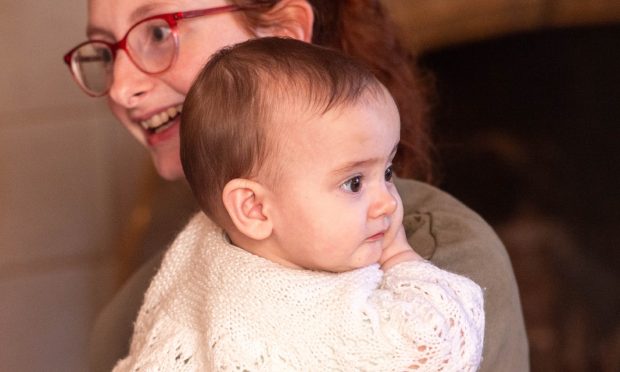

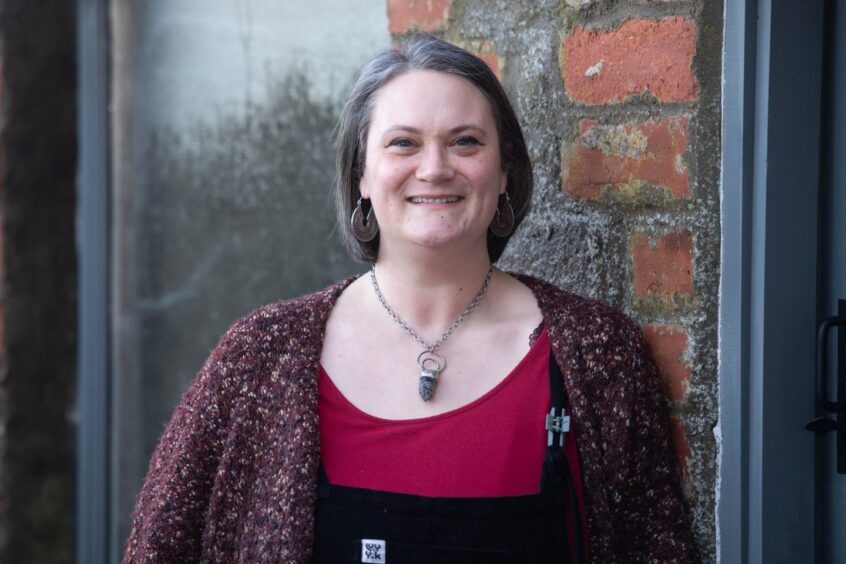
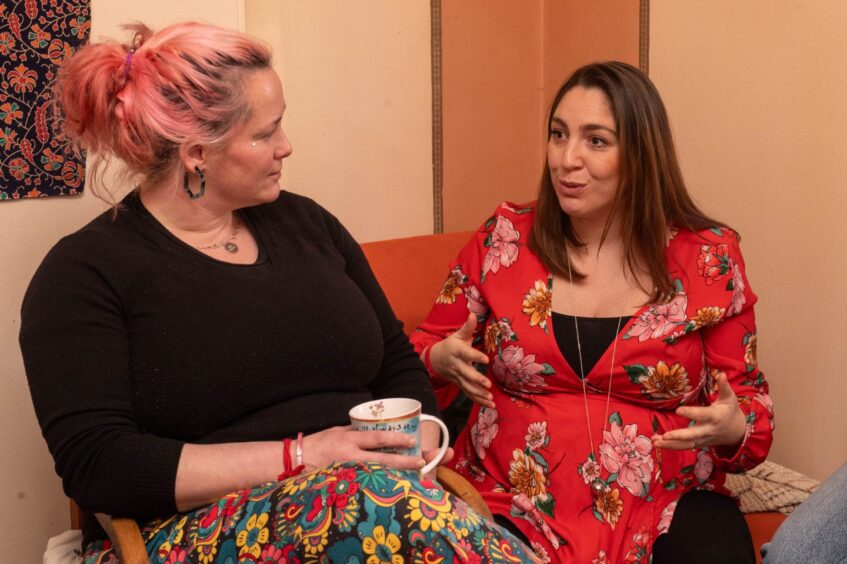
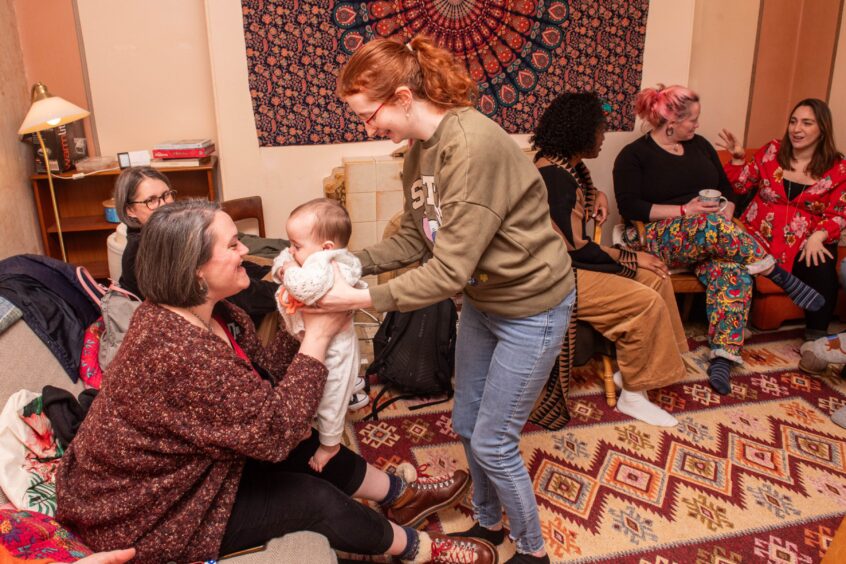
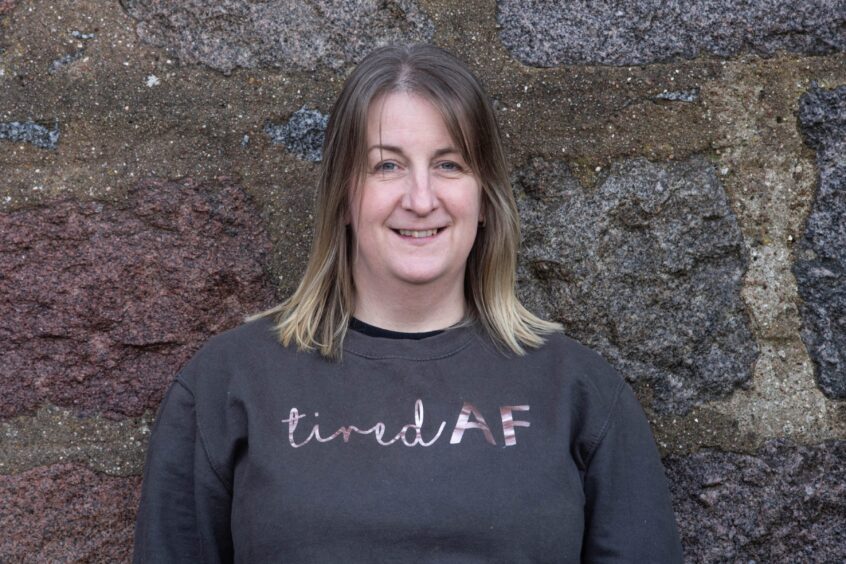
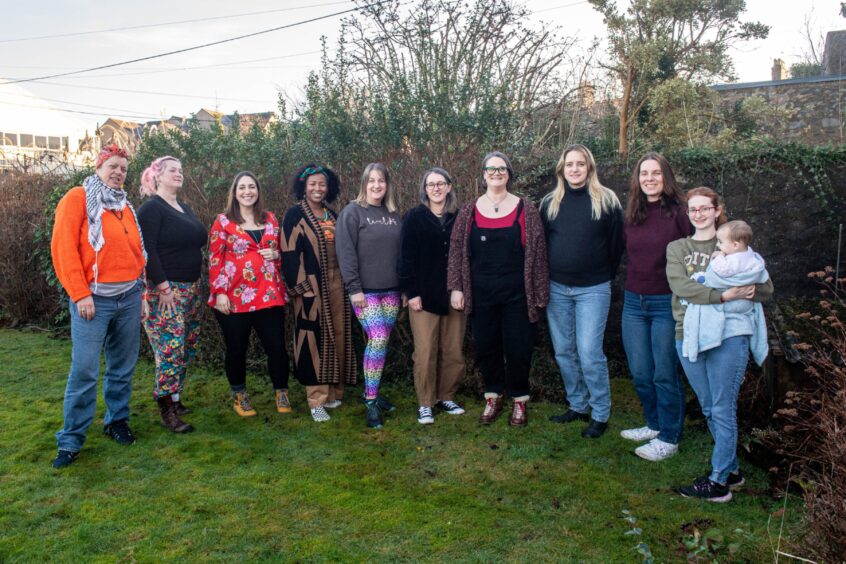
Conversation